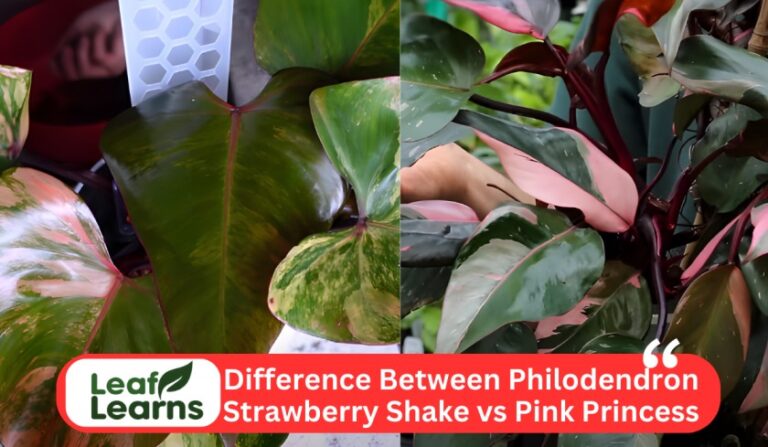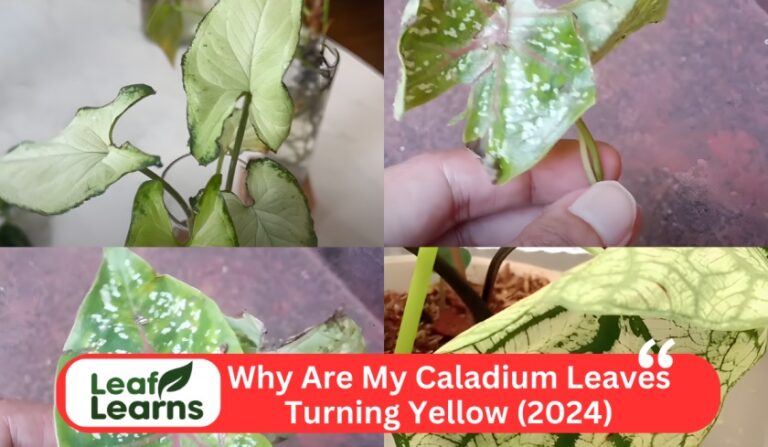Are Monstera Toxic to Cats and Dogs? (2024)
Often pet owners wonder, “Are Monstera toxic to cats and dogs?” In this article, we will shed light on this pressing concern, providing expert advice on these beautiful houseplants’ safety for your furry friends. Discover the truth about keeping your pets and plants healthy by dispelling myths.
A popular indoor plant option, monstera plants boast lush foliage, low maintenance, and are known for their unique split-leaf appearance.
| Aspect | Monstera Toxicity to Cats and Dogs |
| Toxicity Level | Monstera plants are mildly toxic to cats and dogs. Ingesting leaves can lead to GI distress. Severe poisoning is rare. |
| Symptoms in Pets | Common symptoms include vomiting, diarrhea, drooling, and stomach upset. Observe and consult a vet if symptoms persist. |
| Pet Safety | Keep Monstera plants out of their reach to prevent nibbling. Pets usually recover with minimal intervention. |
| Monstera Care | If pets chew on your Monstera, it can recover if only a few leaves are affected. Trim damaged parts and maintain regular plant care. |
| Precautions | Consider placing Monstera plants in a pet-safe location or using pet deterrents to avoid unwanted nibbling. |
| Human Safety | Monstera toxicity in humans is minimal. Skin irritation may occur upon contact with the sap, but it’s rare. |
| Conclusion | While Monstera plants can coexist with pets, taking precautions and ensuring their safety is essential for a harmonious living environment. |
Contents
- 1 Understanding the Danger
- 2 Identifying Toxicity
- 3 Preventing Pet Exposure
- 4 Are Monstera Plants Toxic to Humans?
- 5 Keeping Monstera Safe with Pets
- 6 How to Keep Cats Safe
- 7 In-Depth Look at Monstera Toxicity
- 8 Alternative Non-Toxic Plants
- 9 Pet Safety Concerns: are Monstera toxic to cats and dogs
- 10 Conclusion
- 11 FAQ
Understanding the Danger
Is your furry friend a Monstera plant owner? You need to be aware of the potential dangers that this popular houseplant may pose to your dog.
We will explore the reasons behind this peril and provide valuable insights into the associated risks in this article.
Why Are Monstera Dangerous for Dogs?
There are Calcium Oxalate Crystals in Monstera plants that, when consumed, can cause a number of health issues for dogs.
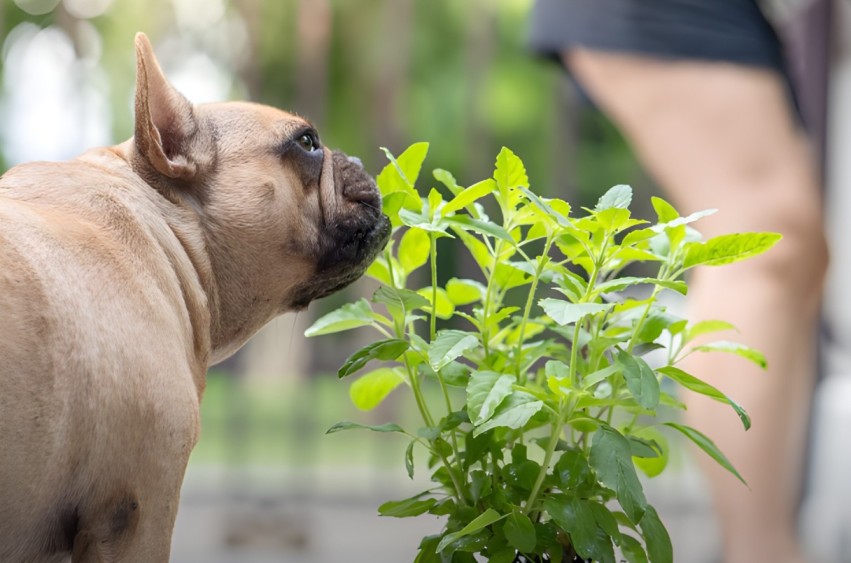
Understanding these crystals is essential to safeguard the health of your pet.
What Are Calcium Oxalate Crystals?
There are tiny crystals of calcium oxalate found in Monstera plants. If your dog chews on the leaves, stems, roots, or even the fruit, these crystals can irritate their mouths, throats and digestive tracts.
Which Parts Are Harmful?
Monsteras are dangerous for dogs because of the presence of these crystals in various parts of the plant:
- Stem: Chewing on the stem can lead to oral irritation.
- Leaves: Ingesting leaves can result in mouth and gastrointestinal discomfort.
- Roots: Roots can also contain these crystals, posing a hazard to your dog.
- Fruit: If your pet consumed the fruit it may have harmful effects on the pets.
Could Monsteras Kill My Dog?
A dog has a small chance of being fatally affected by Monstera toxicity, but it’s crucial to be aware of the potential risks.
Finding veterinary assistance in the event that your dog is experiencing any discomfort after interacting with this plant is crucial.
In order to encourage a harmonious living environment for your greenery and your dog, it is important to educate yourself about the dangers associated with Monstera plants.
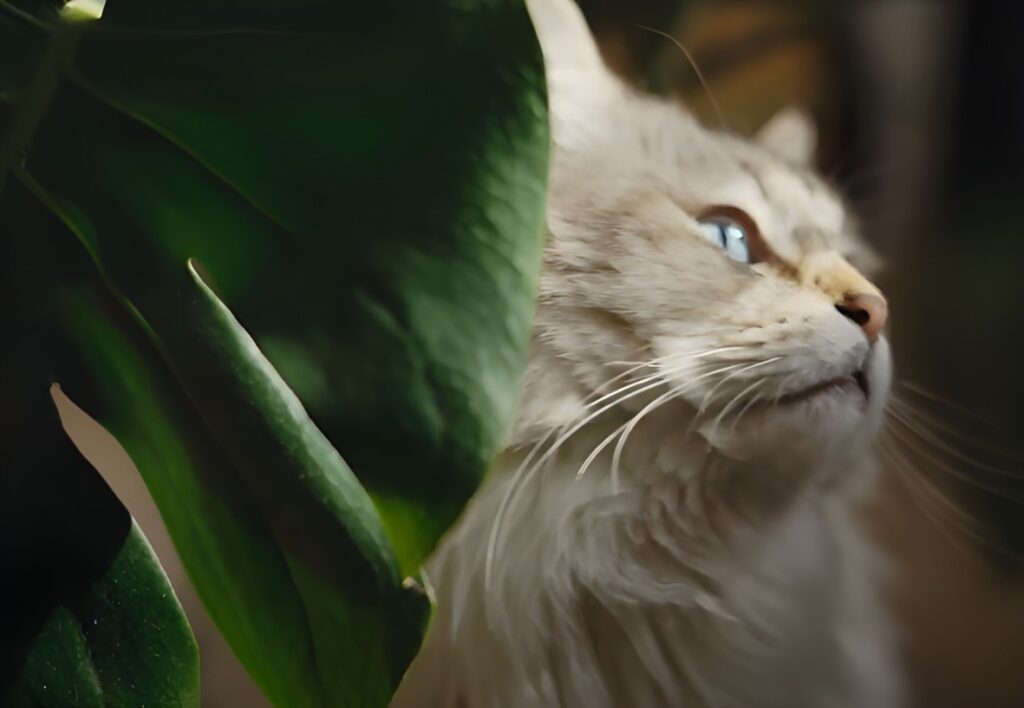
Identifying Toxicity
It’s essential to recognize toxicity in our beloved furry companions. Whether your pet is a dog, a cat, or another pet, you can save their lives by identifying the signs of toxicity.
Keeping your dog safe from toxic compounds is the goal of this article, which explores symptoms of toxicity in dogs as well as treatments that can be used.
And If you want to read more about toxicity of tiger tooth aloe. Then Read tiger tooth aloe.
Symptoms of Toxicity in Dogs
Symptoms of toxicity include vomiting and diarrhea. There is a possibility that something toxic has been ingested by your dog if they suddenly exhibit digestive distress.
It is important to be aware of sluggishness and weakness as they can signal the presence of something wrong. Dogs’ energy levels should be monitored.
A dog’s excessive drooling may be a symptom of toxicity if it drools without apparent reason.
A seizure or tremor are alarming signs and should be addressed immediately. Nervous system damage can be caused by toxic substances.
An ingestion of toxic substances can result in a sudden loss of appetite.
Treatment for Pet Toxicity
In case of suspected toxicity, call your veterinarian as soon as possible. In some cases, they may suggest you bring your pet in for an examination over the phone.
When toxic substances must be removed from your dog’s system, vomiting may be necessary. A veterinarian should, however, be consulted before performing this procedure.
Toxins in the stomach can be absorbed with activated charcoal.
A solution to flush toxins and maintain hydration may be achieved with intravenous fluids for severe cases.
Preventing Pet Exposure
The prevention of pet exposure plays a vital role in creating an environment that is harmonious for both humans and their animals.

No matter how long you’ve had pets or how new you are to the world of pet ownership, ensuring their safety is your top priority.
Discover how you can make your home a pet-friendly environment as well as protect your pets.
Training: The probability of a pet engaging in risky behavior is lessened when it is well-trained. Make sure your pets follow clear boundaries and invest time in basic obedience training.
Distractions: Playing with interactive toys and toys that engage your pets will keep them mentally and physically stimulated. You can prevent them from wandering off by providing them with exciting distractions.
Deterrents: Discourage pets from accessing dangerous areas or objects by using deterrents such as bitter sprays or pet gates.
Safe Plant Alternatives for Dogs: There are many indoor plants that are toxic to pets. If you want an indoor garden that is lush and safe, replace these plants with pet-friendly choices, like spider plants or catnip.
Are Monstera Plants Toxic to Humans?
Potential Risks to Humans
When ingested or applied to the skin or eyes, calcium oxalate crystals in Monstera plants can cause irritation.
Some individuals may experience symptoms such as mouth irritation, nausea, vomiting, and difficulty swallowing after ingesting parts of the plant.
Itching and redness may result from contact with Monstera sap on the skin. Redness and discomfort can also be caused by the sap of the plant. So this is also all the answer of Are Monstera Toxic to Cats and Dogs.
Safety Precautions
Pets and small children should not be exposed to Monstera.
Avoid skin contact with Monstera sap by wearing hand protection when handling them.
Monstera plant parts should never be consumed by humans, children, or pets.
You should thoroughly wash your hands and gardening tools after you’ve tended to your Monstera.
Seek immediate medical attention if you or someone in your household experiences adverse reactions.
Keeping Monstera Safe with Pets
Addressing Pet Curiosity
It’s natural for pets to be curious, and Monstera’s lush, dangling leaves can be irresistibly appealing. The following tips can help you keep Monstera and your pets happy:
- You can deter curious paws by placing your Monstera in hanging baskets or elevating it to out-of-reach places.
- Positive reinforcement techniques should be used to teach your pets to avoid Monstera.
- Bitter sprays can prevent chewing in pets by acting as pet deterrents.
Pet-Friendly Practices
- Plants that are non-toxic, such as spider plants and Boston ferns, are a great choice if you are concerned about your pets’ safety.
- Make your home pet-friendly by setting up pet zones where your furry friends can explore without coming into contact with potentially harmful plants.
- Keep your pets healthy by having them undergo routine vet checkups.
How to Keep Cats Safe
Monstera Toxicity for Cats
The striking foliage of monstera plants can be alluring to cats, but they can be harmful if chewed on or consumed by them.
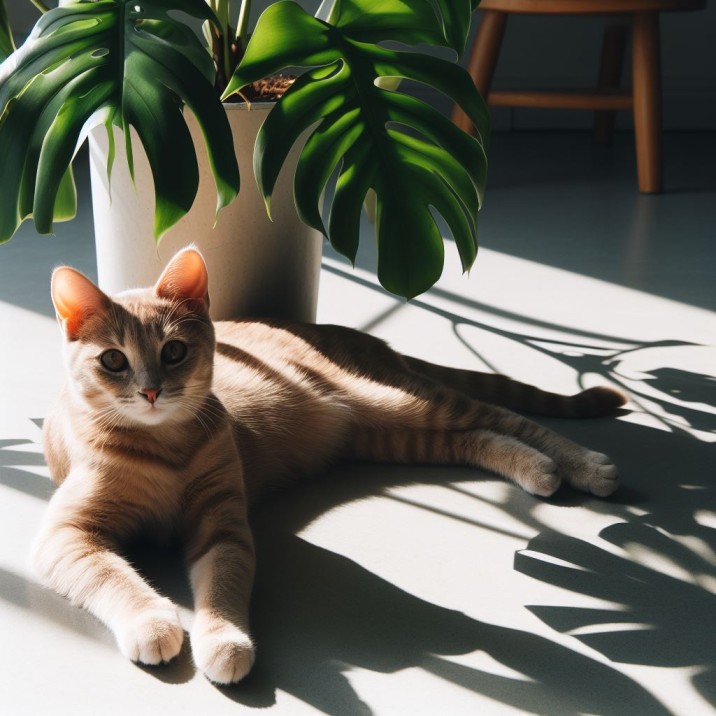
There is a risk of oral and digestive irritation associated with the leaves of this plant. Oxalates are present in their leaves.
The signs and symptoms of this disease may include drooling, vomiting, and even more severe problems in extreme cases.
Consider choosing cat-friendly plants instead of Monstera plants to keep them out of your cat’s reach.
Safety Measures
Here are some key safety measures for cats around Monstera plants:
- It is important to place your Monstera in a place where your cat cannot access it, such as on a shelf or in a hanging planter.
- Monstera leaves should be sprayed with bitter-tasting sprays to deter nibbling.
- Make sure to choose non-toxic plants so your cat isn’t harmed if it accidentally discovers them.
In-Depth Look at Monstera Toxicity
Toxic Components in Monstera
When ingested, Monstera contains crystals called oxalates that are toxic. It is possible for humans and animals to become irritated by these oxalates, as well as experience other adverse effects.
Effects of Monstera Intoxication on Dogs
Monstera can cause health problems for dogs if they ingest it. In addition to discomfort and potential complications, the plant’s oxalates can interfere with the digestive and urinary systems.
Symptoms
Monstera intoxication in dogs is characterized by drooling, vomiting, diarrhea, difficulty breathing, and kidney issues, as well as drooling and vomiting. It is crucial to recognize these signs as early as possible.
Severity
A dog’s size and the amount of Monstera ingested determine the severity of its toxicity. Dogs that are smaller may be more vulnerable, so acting quickly is vital.
Risks
A pet’s health can be adversely affected by Monstera toxicity. This condition may lead to more serious complications, such as kidney damage, if left untreated.
What to Do If Your Dog Ingests Monstera
Observe your dog for any symptoms and remove Monstera from their reach if you suspect your dog has eaten it.
For advice and treatment options, contact your veterinarian right away.
Put Monstera plants out of reach of your pets or use deterrents as preventative measures to prevent future incidents.

Alternative Non-Toxic Plants
Non-toxic houseplant options
Are you looking for non-toxic houseplants? You’re covered! For homes with pets and children, alternative non-toxic plants are the best choice.
You can use these plants to beautify your space as well as to protect your loved ones.
The purpose of this comprehensive guide is to provide a comprehensive overview of different options, their care requirements, and how they can enhance the indoor environment within your home.
Embrace a green, non-toxic lifestyle and say goodbye to worries. So this is all the answer of Are Monstera Toxic to Cats and Dogs.
Pet Safety Concerns: are Monstera toxic to cats and dogs
When it comes to keeping your beloved pets safe from potential harm, considering prevention and safety measures is essential. The question of whether monstera is toxic to cats and dogs looms large in the minds of pet owners.
While some may wonder about monstera’s effects on cats and dogs’ breath, others ponder the risks associated with their skin or the possibility of monstera causing skin irritations in their pets.
To address these concerns and ensure your home is a pet-friendly environment, it’s prudent to explore alternative non-toxic plants for your home.
By being informed about which plants are safe and which are not, you can take the necessary steps to keep your furry friends out of harm’s way, ensuring their well-being and happiness.
Conclusion
Cats and dogs may experience GI distress when exposed to monstera plants, which are popular indoor plants.
It is rare for pets to suffer severe poisoning, and they can usually recover without any medical intervention. Keeping Monstera plants away from children will help prevent them from nibbling on them.
If precautions are taken, Monstera plants and pets can live together peacefully. Make sure pets are not chewing on leaves. It is prudent to be cautious, even though human toxicity is minimal. Keep your pet safe while enjoying the beauty of Monstera.
FAQ
Are Monstera plants toxic to cats?
It is true that Monstera plants are mildly toxic to cats. There is a risk of severe poisoning if you consume Monstera leaves, including vomiting and diarrhea.
Is Monstera safe for cats and dogs?
Keep monstera out of reach if you want to keep it safe. The mild toxic nature of this product does not require extensive intervention for most pets. Leaves should not be nibbled on if access is restricted.
What happens if a cat eats Monstera?
Monstera leaves can cause vomiting and diarrhea in cats who consume them. Consult your veterinarian if symptoms persist.
My pet chewed on my Monstera. Will my plant be okay?
In the case of a few chewed leaves, your Monstera should recover. Keep your pet safe by trimming damaged parts and keeping the plant out of reach.
Can a Monstera plant recover from being eaten?
Having only a few leaves nibbled can cause Monstera to bounce back. Maintain the plant as usual by pruning damaged areas.
Should I get rid of my Monstera if I have a cat?
Monstera does not need to be removed if you have a cat, but precautions like placing it out of reach of your cat are suggested.
How much Monstera is toxic to cats?
Depending on how much Monstera is ingested, cats can be poisoned by it. Your cat’s safety depends on preventing any ingestion.
Can cats touch Monstera?
To prevent cats from chewing on the leaves, keep Monstera out of reach of pets.
Can Monstera cause reactions in people?
Generally, people don’t react strongly to monstera. It is rare for contact to cause skin irritation.
What happens if a baby eats a Monstera leaf?
Monstera leaves are generally not considered highly toxic to humans, so monitor any adverse reactions if your baby ingests them.
Are Monsteras toxic to humans?
Some people may be irritated by Monstera sap, though it is generally not highly toxic.
Are Monsteras poisonous to horses?
Horses shouldn’t consume Monstera as a precaution, despite it being not commonly known to be toxic.
Are Monsteras poisonous to birds?
Birds aren’t known to be harmed by Monstera, but it’s safer if they aren’t allowed to access the tree.





